Basic Addition Word Problems Worksheets for Ages 6-8
6 filtered results
-
From - To
Discover our engaging Basic Addition Word Problems Worksheets designed for children aged 6-8! These fun and interactive worksheets help young learners build foundational math skills while solving relatable scenarios that incorporate real-life contexts. With a variety of problem types and increasing levels of difficulty, these worksheets promote critical thinking and enhance comprehension. Our resources are perfect for both classroom use and at-home learning, making math enjoyable for kids. Equip your child with essential addition skills through hands-on exercises that inspire confidence and foster a love for learning. Explore our collection today and watch your child's math abilities flourish!
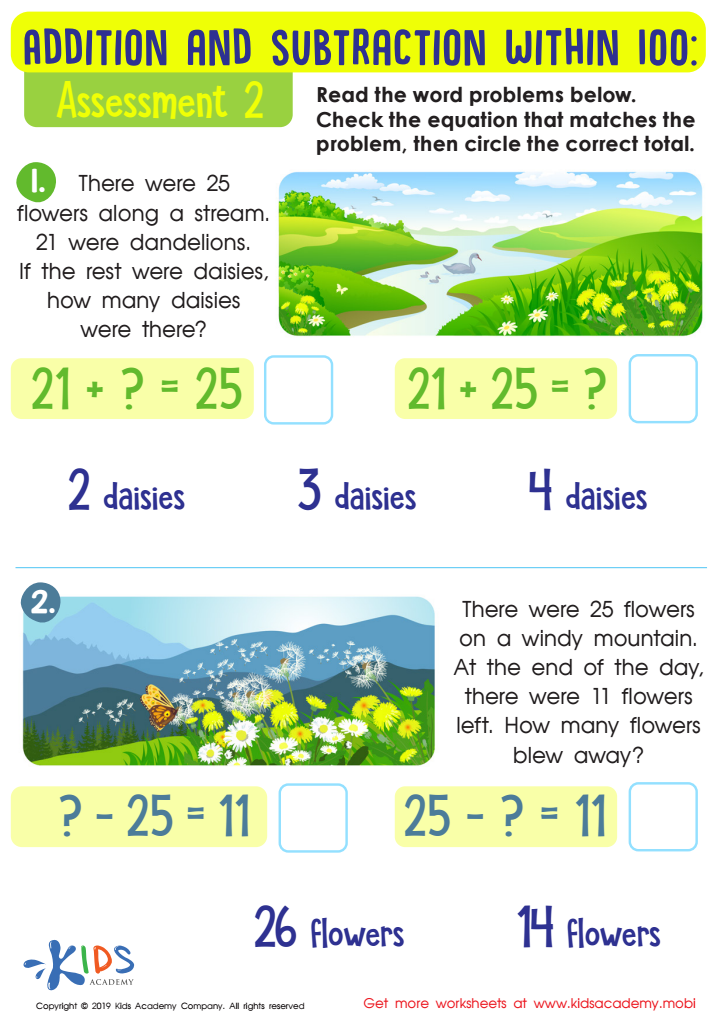

Assessment 2 Math Worksheet
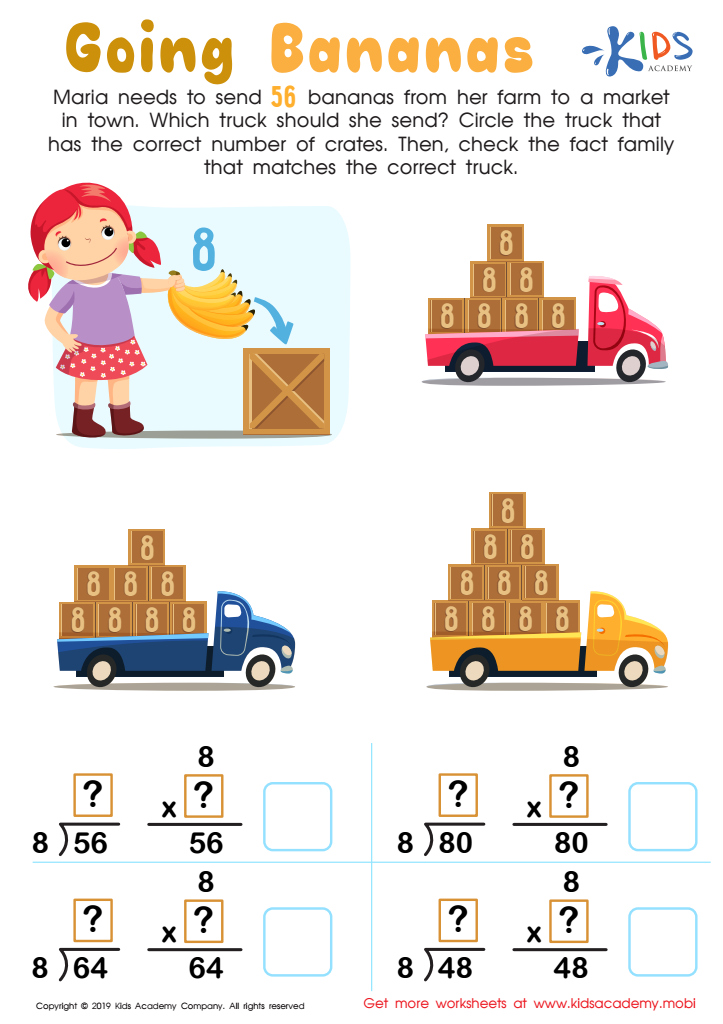

Going Bananas Worksheet
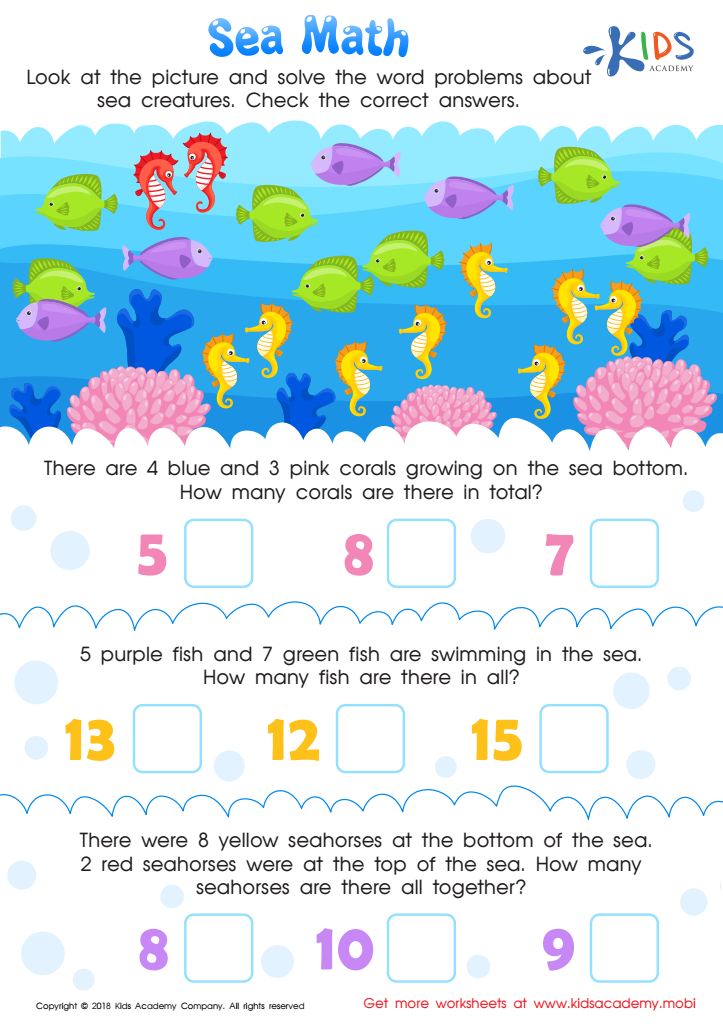

Sea Math Worksheet
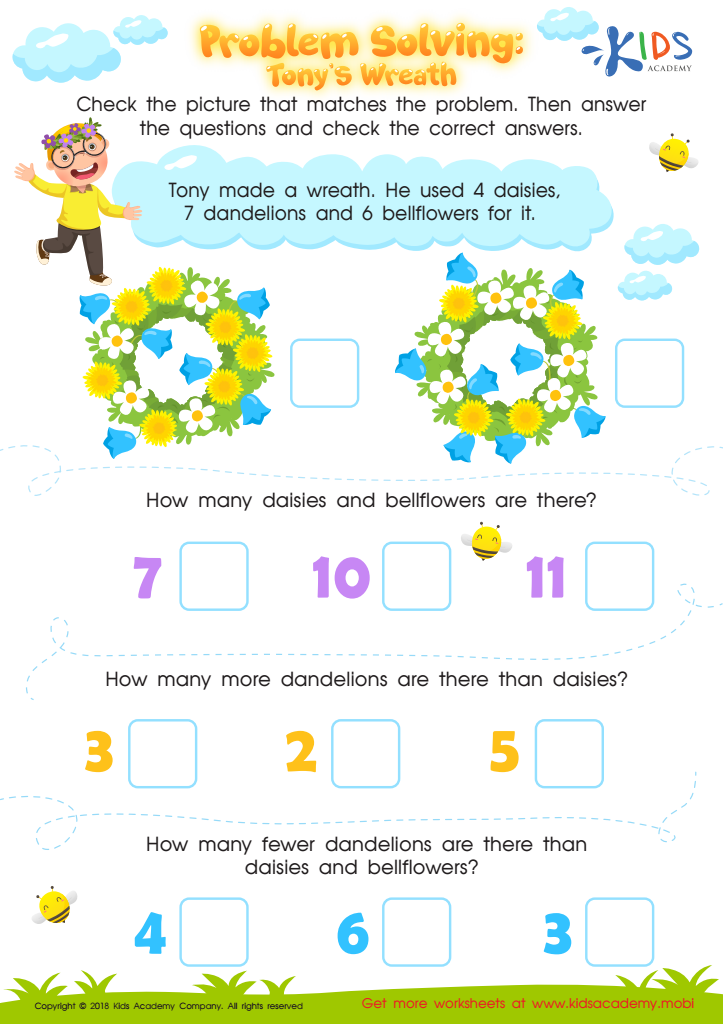

Problem Solving: Tony's Wreath Worksheet
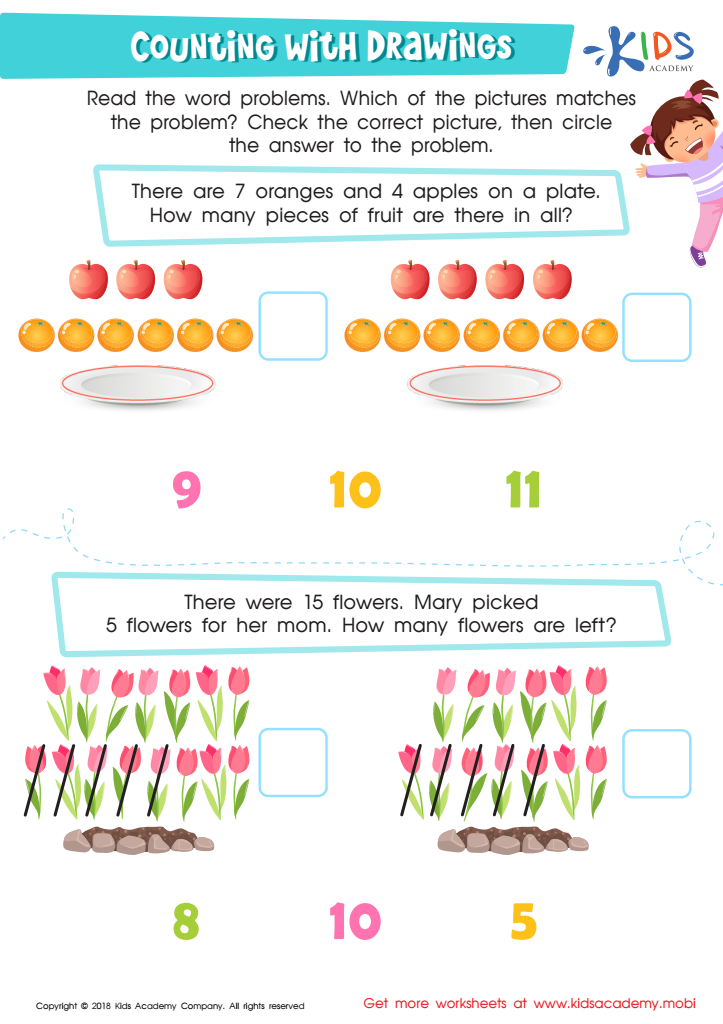

Counting with Drawings:Fruits & Flowers Worksheet
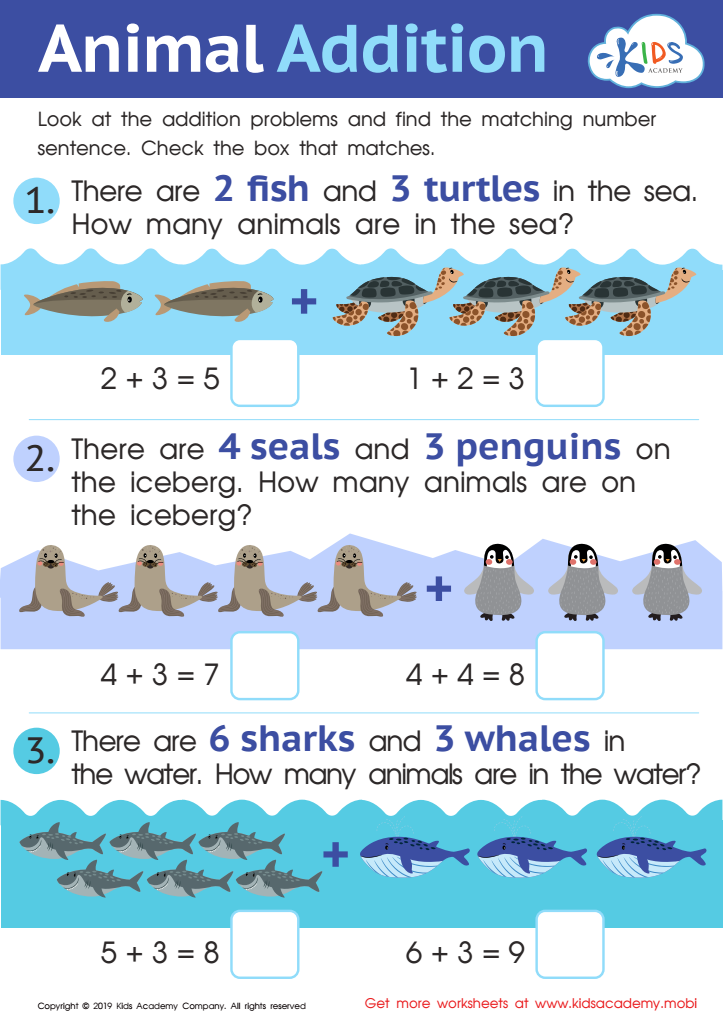

Animal Addition Worksheet
Basic addition word problems are essential for children aged 6-8, serving as a crucial bridge between mathematical concepts and real-life scenarios. Engaging with these problems helps students develop critical thinking and problem-solving skills, as they learn to interpret information within a context. This not only reinforces their understanding of addition but also places value on the practical applications of math in everyday life.
Parents and teachers should prioritize these activities because they encourage students to enhance their reading comprehension and vocabulary; understanding the language used in mathematics is an essential skill. Moreover, this practice fosters a growth mindset, as children encounter and overcome challenges in problem-solving. It promotes perseverance and confidence in their abilities, laying a solid foundation for more complex mathematical concepts.
Additionally, word problems often involve multi-step solutions, which teach children to organize their thoughts and approach problems methodically. This can improve overall academic performance as they encounter similar tasks across various subjects. Ultimately, nurturing a positive attitude toward math empowers children and prepares them for future learning. By emphasizing the importance of basic addition word problems, parents and teachers can cultivate a supportive environment that fosters a lifelong appreciation for mathematics.

 Assign to My Students
Assign to My Students
















